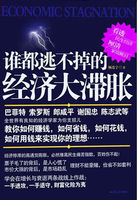To what extent furthermore improvements in the details of existing machinery can be made, depends of course on the nature of these improvements and the construction of the machine itself. How well this point is considered at the very outset in the construction of railways is shown by Adams: "The whole structure should be set out on the principle which governs the beehive -- capacity for indefinite extension. Any fixed and decided symmetrical structure is to be deprecated, as needing subsequent pulling down in case of enlargement." (P. 123.)This depends largely on the available space. In the case of some buildings additional storeys may be built; in the case of others lateral extension, hence more land, is required. Within capitalist production there is on the one side much waste of material, on the other much impracticable lateral extension of this sort (partly to the injury of the labour-power)in the gradual expansion of the business, because nothing is undertaken according to a social plan, but everything depends on the infinitely different conditions, means, etc., with which the individual capitalist operates.
This results in a great waste of the productive forces.
This piecemeal reinvestment of the money reserve fund (i.e., of that part of the fixed capital which has been reconverted into money) is easiest in agriculture. A field of production of a given area is here capable of the greatest possible gradual absorption of capital. The same applies to where there is natural reproduction as in cattle breeding.
Fixed capital entails special maintenance costs. A part of this maintenance is provided by the labour-process itself; fixed capital spoils, if it is not employed in the labour-process (Buch I, Kap. VI, S. 196 and Kap. XIII, S. 423, [English edition: Ch. VIII and XV. -- Ed .] on wear and tear of machinery when not in use). The English law therefore explicitly treats it as waste, if rented lands are not cultivated according to the custom of the land. (W. A. Holdsworth, Barrister at Law, The Law of Landlord and Tenant , London, 1857, p. 96.) This maintenance resulting from use in the labour-process is a free gift inherent in the nature of living labour. Moreover the preservative power of labour is of a two-fold character. On the one hand it preserves the value of the materials of labour by transferring it to the product, on the other hand it preserves the value of the instruments of labour without transferring this value to the product, by preserving their use-value through their activity in the process of production.
The fixed capital however requires also a positive expenditure of labour for its maintenance in good repair. The machinery must be cleaned from time to time. It is a question here of additional labour without which the machinery becomes useless, of merely warding off the noxious influences of the elements, which are inseparable from the process of production;hence it is a question of keeping the machinery literally in working order.
It goes without saying that the normal durability of fixed capital is calculated on the supposition that all the conditions which it can perform its functions normally during that time are fulfilled, just as we assume, in placing a man's life at 30 years on the average, that he will wash himself. It is here not a question of replacing the labour contained in the machine, but of constant additional labour made necessary by its use. It is not a question of labour performed by the machine, but of labour spent on it, of labour which it is not an agent of production but raw material. The capital expended for this labour must be classed as circulating capital, although it does not enter into the labour-process proper to which the product owes its existence. This labour must be continually expended in production, hence its value must be continually replaced by that of the product. The capital invested in it belongs in that part of circulating capital which has to cover the unproductive costs and is to be distributed over the produced values according to an annual average calculation. We have seen [Karl Marx, Capital, Vol. I, p. 426, Note 1. -- Ed .] that in industry proper this labour of cleaning is performed by the workingmen gratis, during the rest periods, and for that very reason often also during the process of production itself, and most accidents can be traced to this source. This labour does not figure in the price of the product. As far as that goes the consumer receives it gratis. On the other hand the capitalist thus does not pay the maintenance costs of the machine. The labourer pays in persona , and this is one of the mysteries of the self-preservation of capital, which in point of fact constitute a legal claim by the labourer on the machinery, on the strength of which he is a co-owner of the machine even from the standpoint of bourgeois law. However, in various branches of production, in which the machinery must be removed from the process of production for the purpose of cleaning and where therefore the cleaning cannot be performed inbetween, as for instance in the case of locomotives, this maintenance work counts as current expenses and is therefore an element of circulating capital. For instance a goods engine should not run more than 3 days without being kept one day in the shed . . . . If you attempt to wash out the boiler before it has cooled down that is very injurious.
(R.C., No. 17823.)












